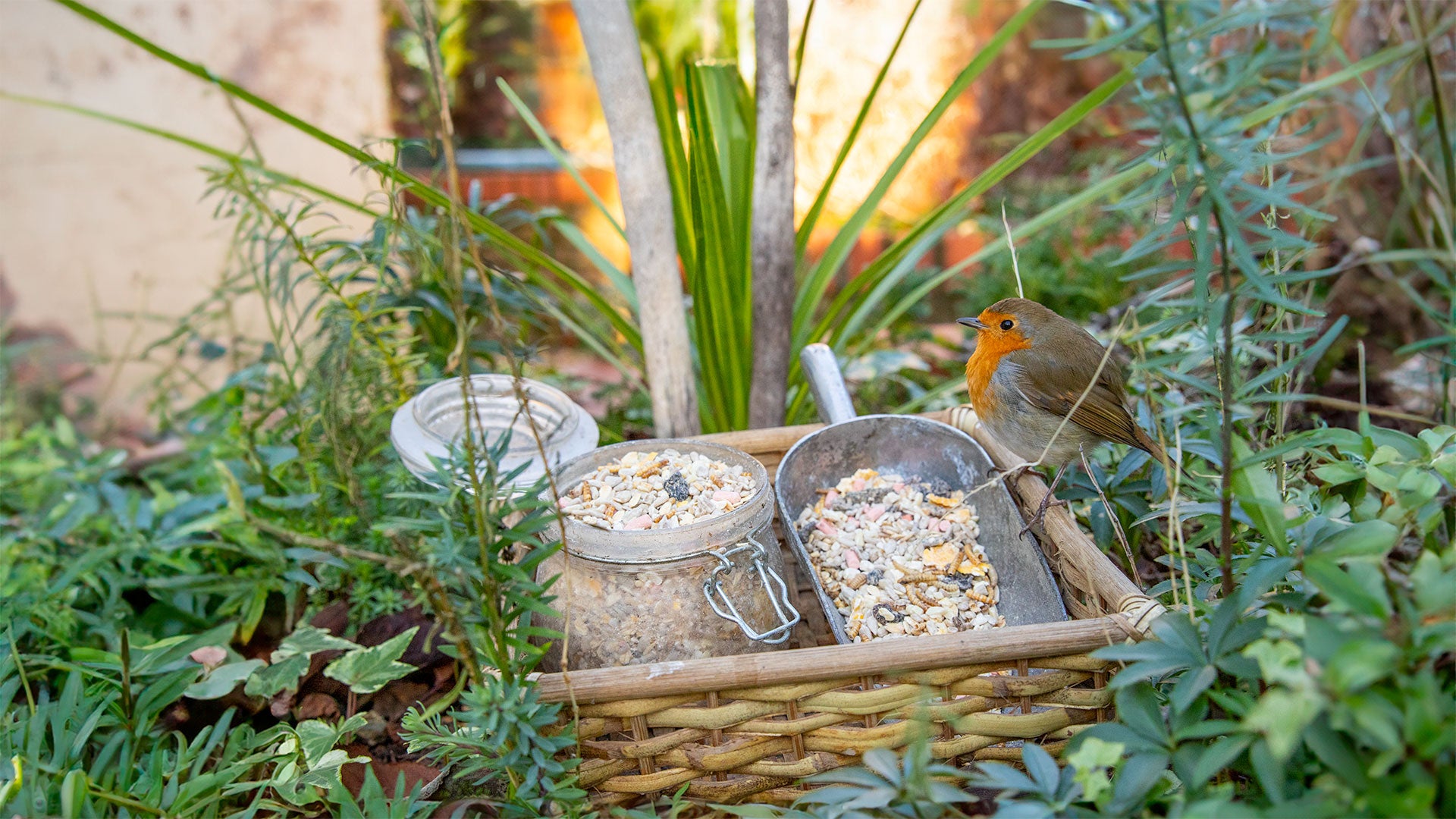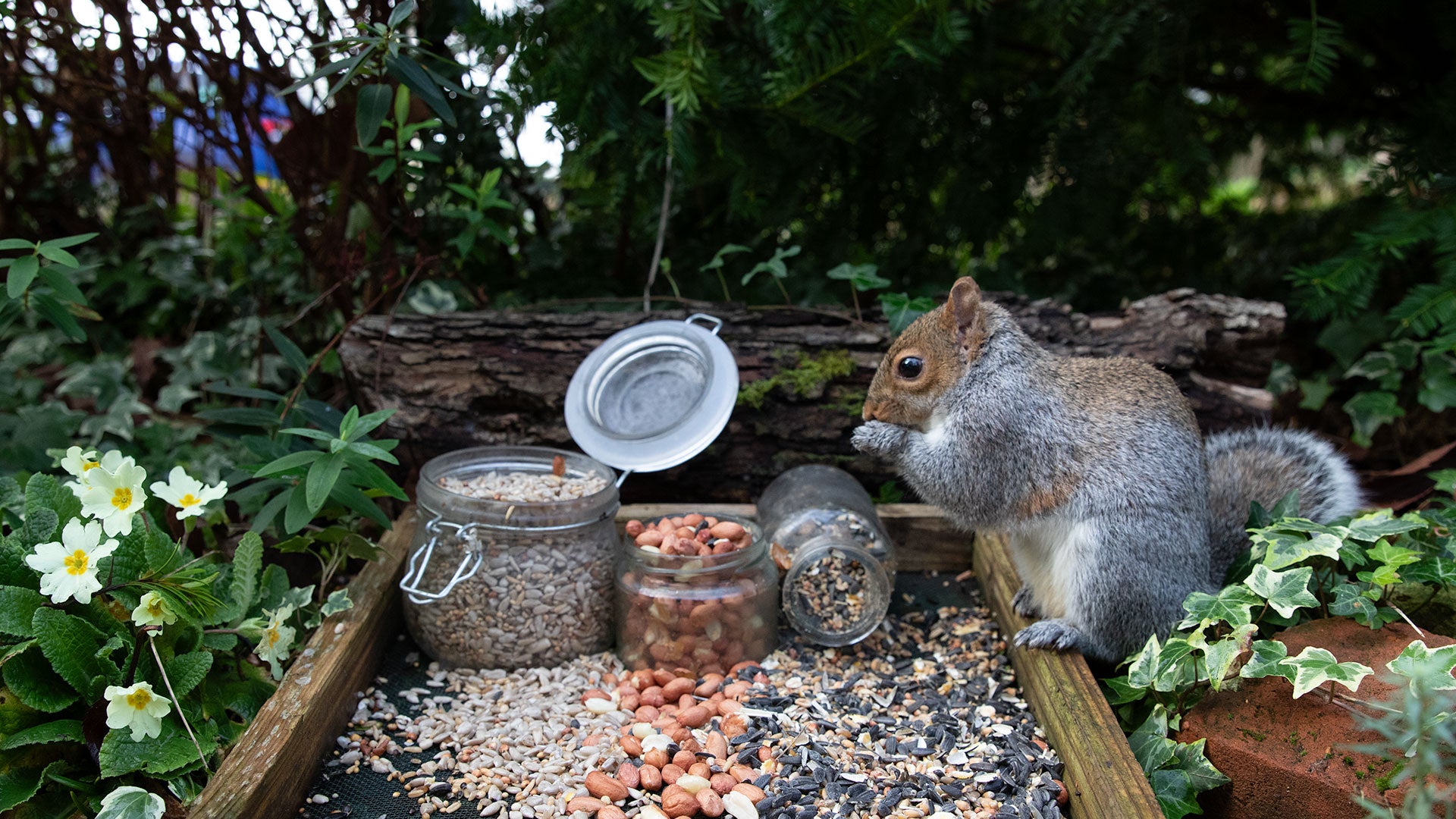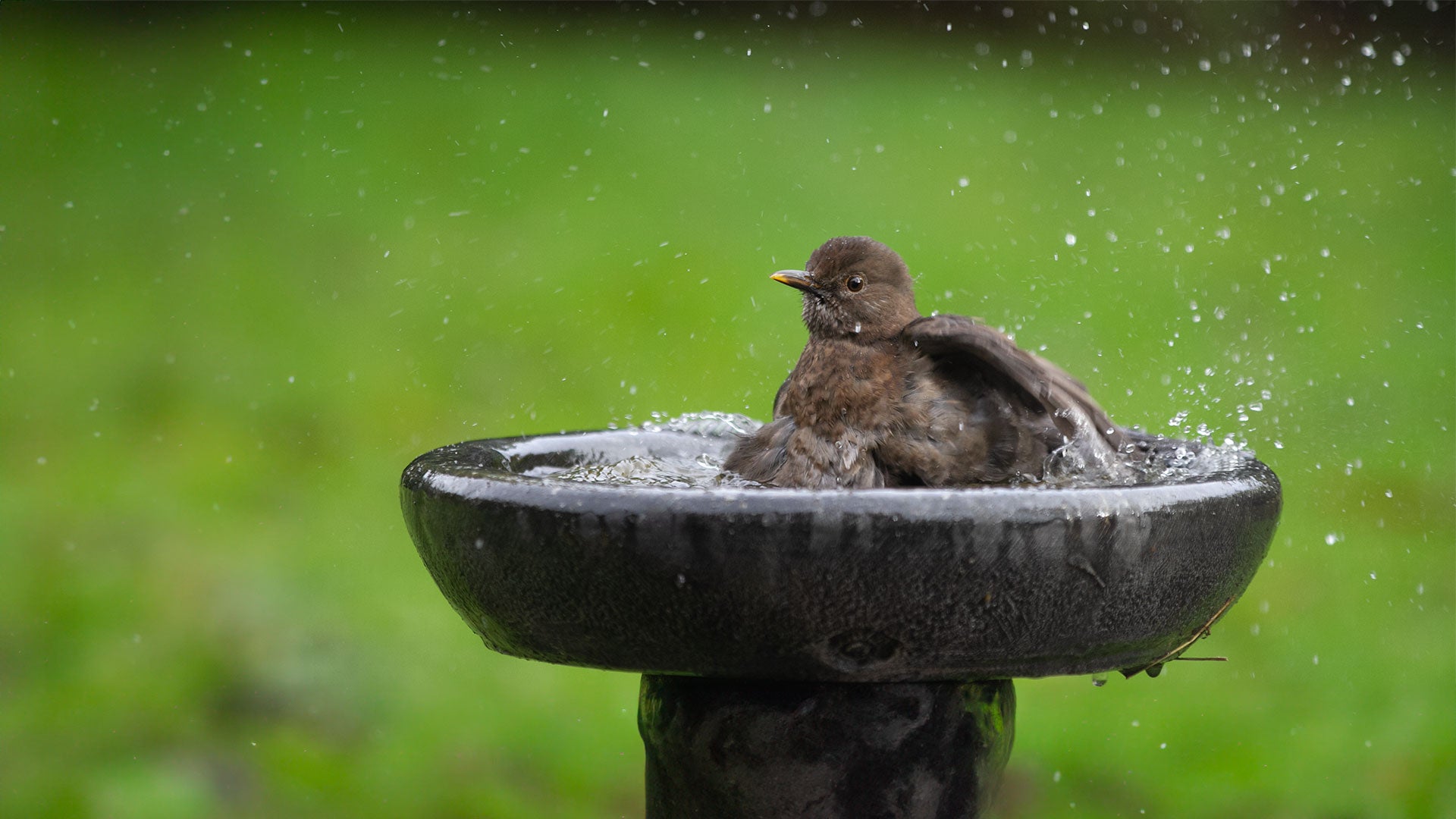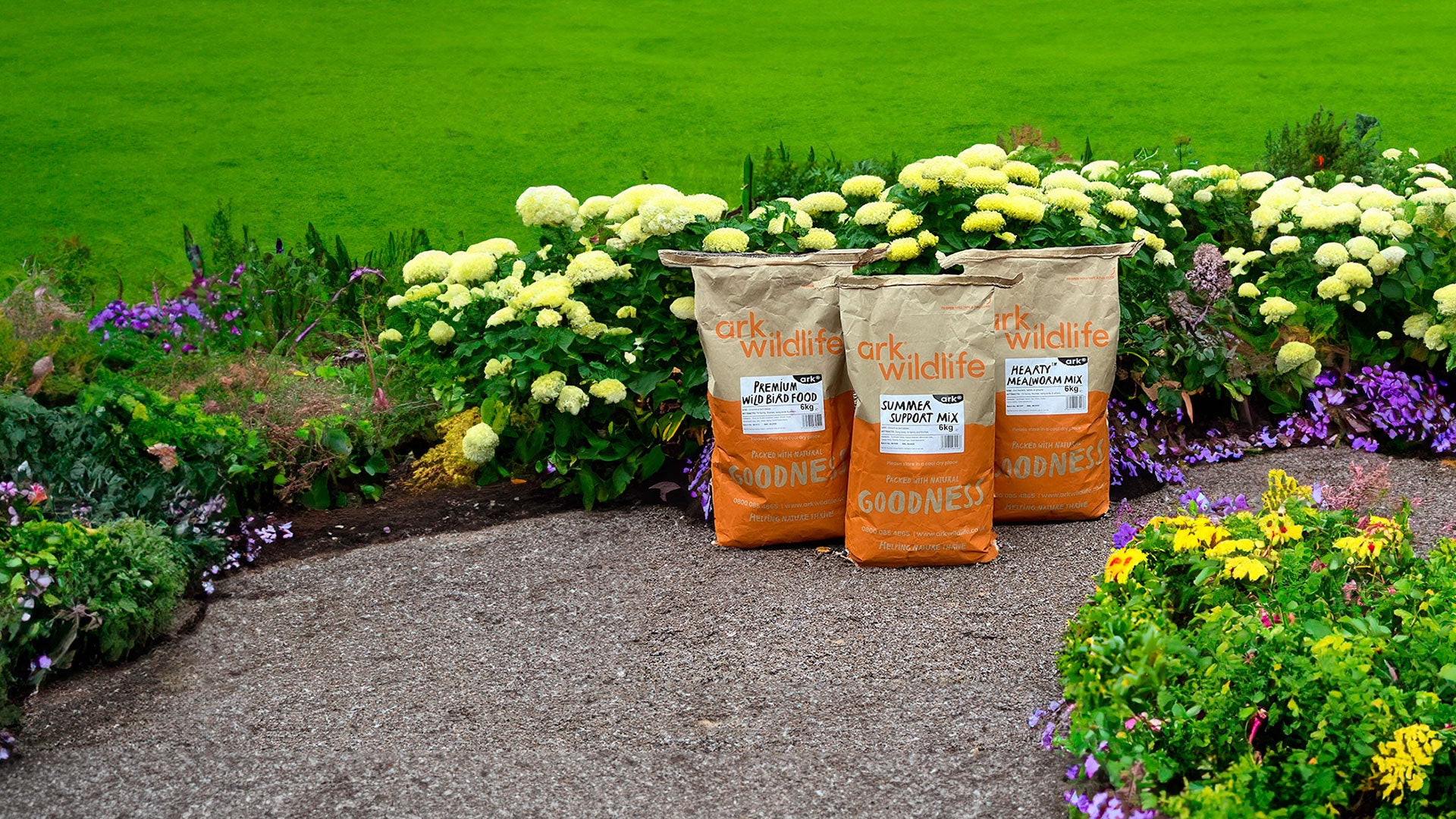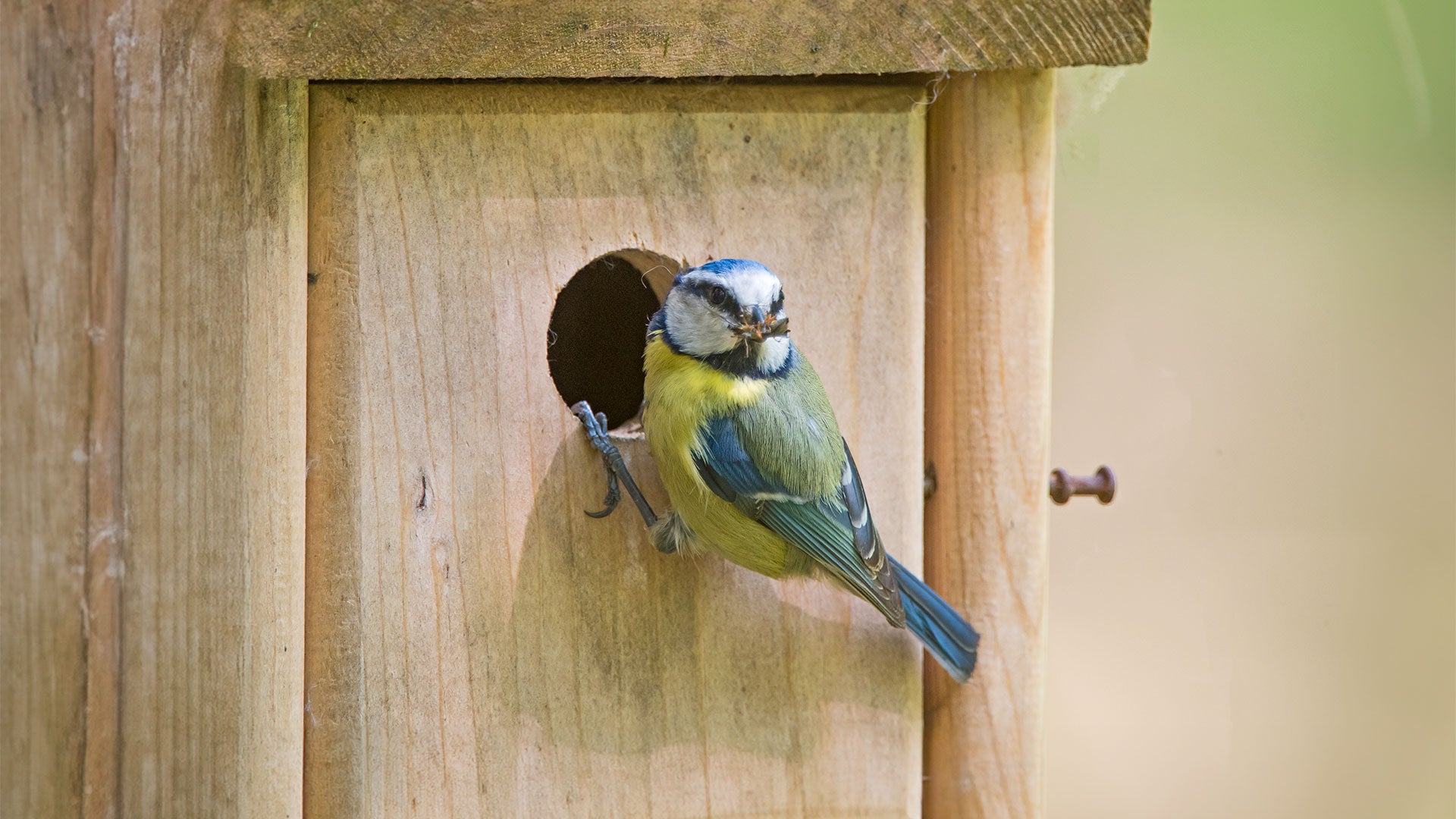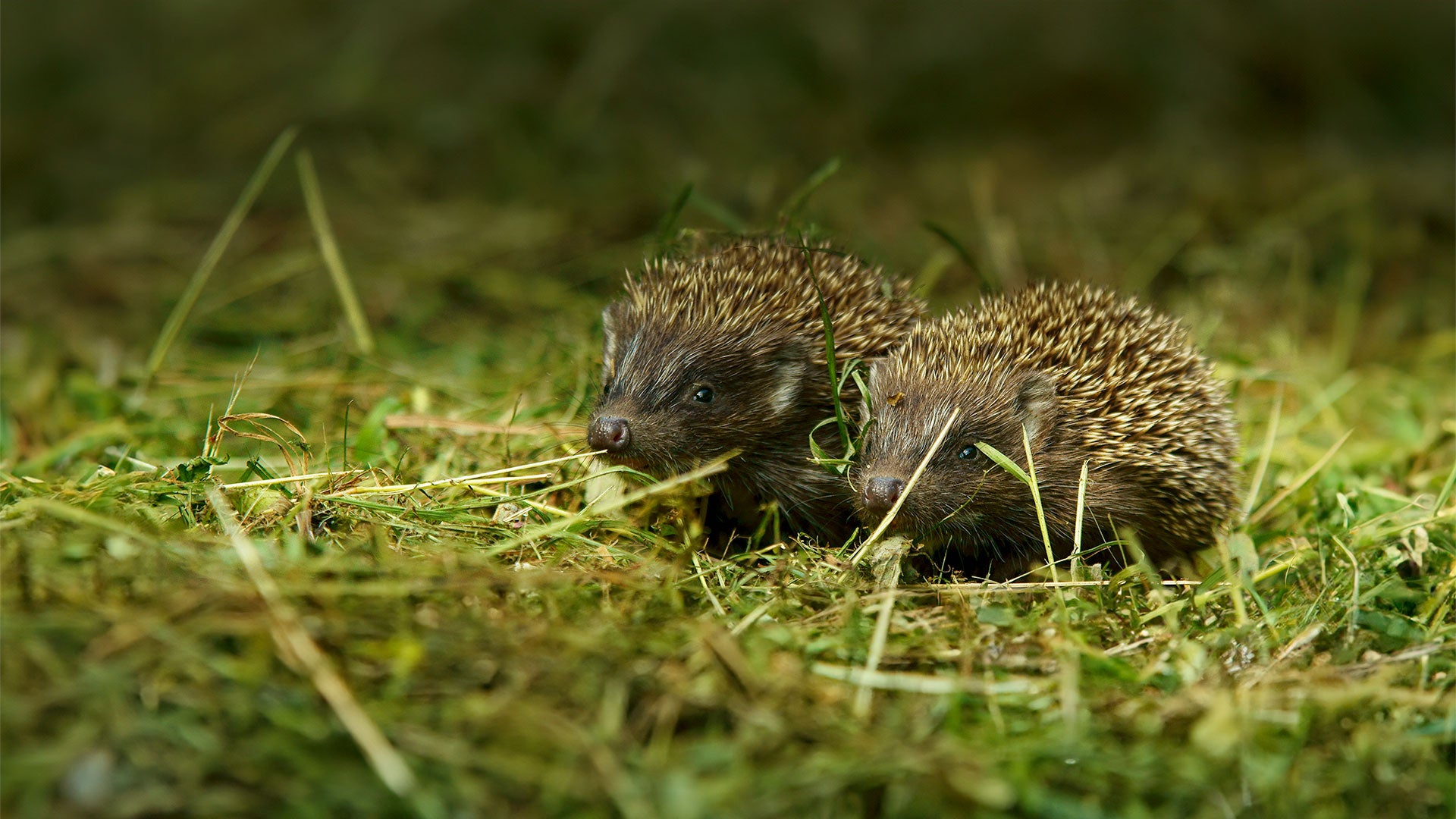For over 30-years Ark Wildlife have been listening to customers, answering your questions, and watching wild garden birds up close. One of the most frequent concerns is this: what shouldn’t I feed them?
The wrong food, no matter how well-intentioned, can do more harm than good. Some items are low in nutrition, while others can be outright dangerous. In this guide, we share the foods to avoid, why they cause problems, and what you can offer instead. That way, your feeders stay safe, healthy, and full of life.
Why What You Don’t Feed Matters
Most people feed birds with kindness. A crust of bread, leftovers from the kitchen, a bowl of rice. But many of these foods are poor substitutes for a balanced diet. Birds that fill up on them may miss the vital fats and proteins needed for survival. Others risk toxins from pesticides or household products.
Over the years, we’ve heard it all. ‘Why don’t birds visit my garden?’ ‘Why do I only attract pigeons and crows?’ ‘I get more rats than birds on the bird table!’ By choosing carefully and understanding what not to put out, and why, you can keep your bird feeding areas full of life all year round, and know you’re helping their populations thrive.
Bread & Bakery Products – Why They’re Best Avoided
It’s a question we hear often: “Is bread harmful to birds?”
In answer: It isn’t toxic in small amounts, but equally it’s a very poor quality food. Here are some of the reasons you shouldn’t feed bread to wild birds.
- Low nutrition – bread fills a bird’s stomach but provides little protein, fat or vitamins.
- Displacement effect – birds that eat bread may ignore more nourishing foods.
- Mould risk – stale or damp bread grows moulds that can cause respiratory infections like aspergillosis.
- Choking & swelling – bread can expand, especially when soaked, and cause blockages.
We once helped a customer who regularly scattered bread on her bird table because she was fond of blue tits. However, she only managed to attract pigeons and a noisy rabble of starlings and all the blue tits disappeared. She’d effectively turned her garden into a fast-food outlet. When we advised her to switch to sunflower hearts offered in a small hanging feeder, the blue tits quickly returned and the pigeons moved on.
Top Tips: Better alternatives are Hearty nutritious foods such as Sunflower Hearts or Suet Pellets. These give birds the calories and protein they truly need.

Slug Pellets & Pesticides – A Silent Danger
Another frequent question: “Are slug pellets harmful to birds?”
Yes. Many traditional pellets contain metaldehyde, which is toxic and can cause tremors, digestive distress, even death. Even newer ferric phosphate pellets aren’t entirely safe, especially when birds eat poisoned slugs or snails.
Birds don’t need to eat the pellets directly; their toxins travel up the food chain. Slugs and snails become weakened before they die, making them easy pickings for wild birds typically blackbirds and thrushes. Each time they feed on a poisoned slug or snail, they ingest ever more toxins which slowly build-up and overwhelm the birds. We’ve known areas where blackbirds and thrushes vanish from gardens where pellets were used heavily.
Top Tips: Better alternatives use wildlife-friendly deterrents such as copper tape, beer traps, or crushed eggshells. Non-toxic alternatives such as Grazers Slugs and Snails work by making plants distasteful and not by use of poison. Making them safe for people, plants and birds alike.
Household Items & Leftovers – What to Avoid
Over the years, customers have asked us about all sorts of household substances. Here’s what we tell them:
- Vinegar – too acidic for birds, can cause digestive irritation. Fine for cleaning feeders (when diluted), once thoroughly rinsed, but never used near food.
- Baking soda – while frequently used for natural garden pest control, in powder form is an irritant to birds’ eyes and lungs and if consumed can disrupt internal chemistry. Best avoided.
- Ant powders – contain insecticides toxic to non-target species. Don’t use near feeders.
- Red algae & algaecides – many formulations include harmful additives; avoid in bird baths or wildlife friendly ponds.
- Cayenne pepper or chilli powder – sometimes suggested as a squirrel deterrent, but when used in dry powder form, can become airborne and irritate birds eyes. Use with caution.
When it comes to kitchen scraps, we’ve heard it all. Mince pies put out for robins at Christmas, Sunday roast shared with the wildlife, even bowls of cereal for the blackbirds! While the intention is kind, not everything from our kitchens belongs at the bird table.
Household Foods to Avoid
Many human foods are either unsafe, too salty, or too processed for birds’ delicate systems. Here are the most common culprits:
- Cooked or raw meat – can quickly spoil, attract rats, and spread bacteria such as salmonella.
- Fatty leftovers like chips, gravy or roast trimmings – too salty and oily, clogging feathers and damaging waterproofing.
- Cakes, biscuits, and pastry – high in sugar and saturated fats, which birds can’t process effectively.
- Cooked potatoes, pasta, or rice – heavy and filling but nutritionally poor, offering little energy.
- Salty snacks (crisps, nuts, bacon) – salt affects a bird’s fluid balance and can cause dehydration.
- Mouldy or stale food – mould spores can cause fatal respiratory infections.
- Dairy products – birds lack the enzymes to digest lactose, leading to digestive upset.

What About “Good” Scraps?
Not all kitchen leftovers are bad, some can be useful in moderation, especially during harsh weather when natural food is scarce. Here’s what’s safe to share occasionally:
- Chopped fruit – apples, pears, grapes, raisins, or sultanas (soaked first).
- Unsalted cooked rice or pasta – fine in small amounts, but remove all uneaten leftovers the same day. These foods quickly grow moulds and harmful bacteria!
- Plain cooked vegetables – peas, sweetcorn, or carrots, finely chopped and unsalted.
- Oats – uncooked porridge oats can be mixed with suet or seeds for a nutritious filler.
Think of these as emergency extras - useful when natural pickings are thin, but never a replacement for proper bird food.
Top Tips: Better alternatives for everyday feeding, rely on balanced, wildlife-safe options like Ark Premium Wild Bird Food, Sunflower Hearts, or Suet Pellets. Designed for nutrition and freshness, they keep your garden birds thriving year-round. No guesswork required.
Magpies, Starlings & Other Dominant Birds
What Not to Feed Magpies
Magpies are opportunistic and will eat anything from scraps to carrion. But feeding them processed meats, breads, or salty foods does them no favours. Encourage them with natural foods such as peanuts, fruit, or suet if you wish. To discourage them, use squirrel proof or small bird hanging feeders filled will mixed wild bird food or sunflower hearts.

What Bird Food Do Starlings Not Like?
Starlings are voracious and intelligent birds. They’ll eat almost anything and can be as determined as squirrels to access known food sources. While they should be enjoyed and supported, they do tend to arrive mob-handed at the expense of less dominant birds.
They’re less fond of small seeds like niger, which goldfinches love. Also, cereal grains such as wheat or rolled oats. So, if starlings overwhelm your garden, try offering these options first, but also consider buying a species specific feeder that exclude them from reaching more attractive seeds.
Top Tips: Better alternatives create variety at your feeding station with different feeders — niger feeders for finches, suet feeders for tits, and ground trays for robins and blackbirds.
What Not to Feed in Winter vs Summer
- Winter – birds need high-energy foods to survive long, cold nights. Bread or sugary leftovers can fill them up without the fuel they need, leaving them vulnerable.
- Summer – scraps spoil quickly, especially in heat. Mouldy food and bacterial growth spells danger and brings disease. Dairy products can upset digestion and are best avoided.
Top Tips: Better alternatives year-round Seasonal Bird Feeding Mixes give the right balance at the right time.

FAQ’s - How to Feed Wild Birds Safely
Why is feeding garden birds so important?
Feeding garden birds bridges the gap between what nature provides and what the modern landscape lacks. Urban gardens, tidied verges, and pesticide use mean fewer insects and seeds than birds once relied on. Your feeders become a vital lifeline, especially in cold, dry, or drought conditions and a steady supply of food can improve survival rates through winter and breeding success in spring.
How can I feed birds safely?
It is vital to keep feeders clean at all times and food fresh. When we attract birds into our gardens we take responsibility for their welfare. Feeding areas have the potential to be disease hot-spots, and it is our job to ensure they remain clean and sterile. Wash bird tables and feeders every week with warm water (never bleach), and always rinse thoroughly. Then give them a deep clean ideally every month. Remove old or mouldy food, birds can become ill from contaminated seed. If possible, rotate feeding spots to reduce disease build-up under feeders, and provide fresh water daily for drinking and bathing.
What’s the safest food to offer all year round?
If you’re unsure what’s in season, you can’t go wrong with sunflower hearts, suet pellets, and seed mixes designed for year-round use. They provide balanced nutrition for a wide range of species. mealworms or calcium worms are excellent protein boosts during breeding and moulting seasons.
Should I stop feeding birds in summer?
No, but you can adapt what you offer. In hot weather, switch from soft, oily foods to drier options and provide more water. Avoid whole peanuts or large suet blocks that fledglings might choke on, and keep everything clean as food spoils faster in the heat.
How can I make my garden safer for birds?
Place feeders near sheltering shrubs or trees for quick cover from predators, and keep feeding areas away from reflective windows to prevent collisions. If you have cats, use elevated feeders or prickly shrubs as barriers, and consider a collar bell to reduce hunting success.
Tip from the Ark Wildlife team: Safe feeding isn’t just about food - it’s about habitat. Combine good hygiene, reliable nutrition, and plant lots of natural cover, then your garden will become a sanctuary.

Final Thoughts
Feeding garden birds is one of life’s simplest pleasures, but with it comes responsibility. Some foods, bread, processed scraps, pesticides, can harm more than help. By understanding what not to feed, you give your birds a real chance to thrive.
At Ark Wildlife, we believe in feeding birds the way nature intended, with nutritious seed, suet, fruit, and insects all as close to the bird’s natural diet as possible. It’s why our feeds are carefully blended and trusted by wildlife lovers across the UK.

